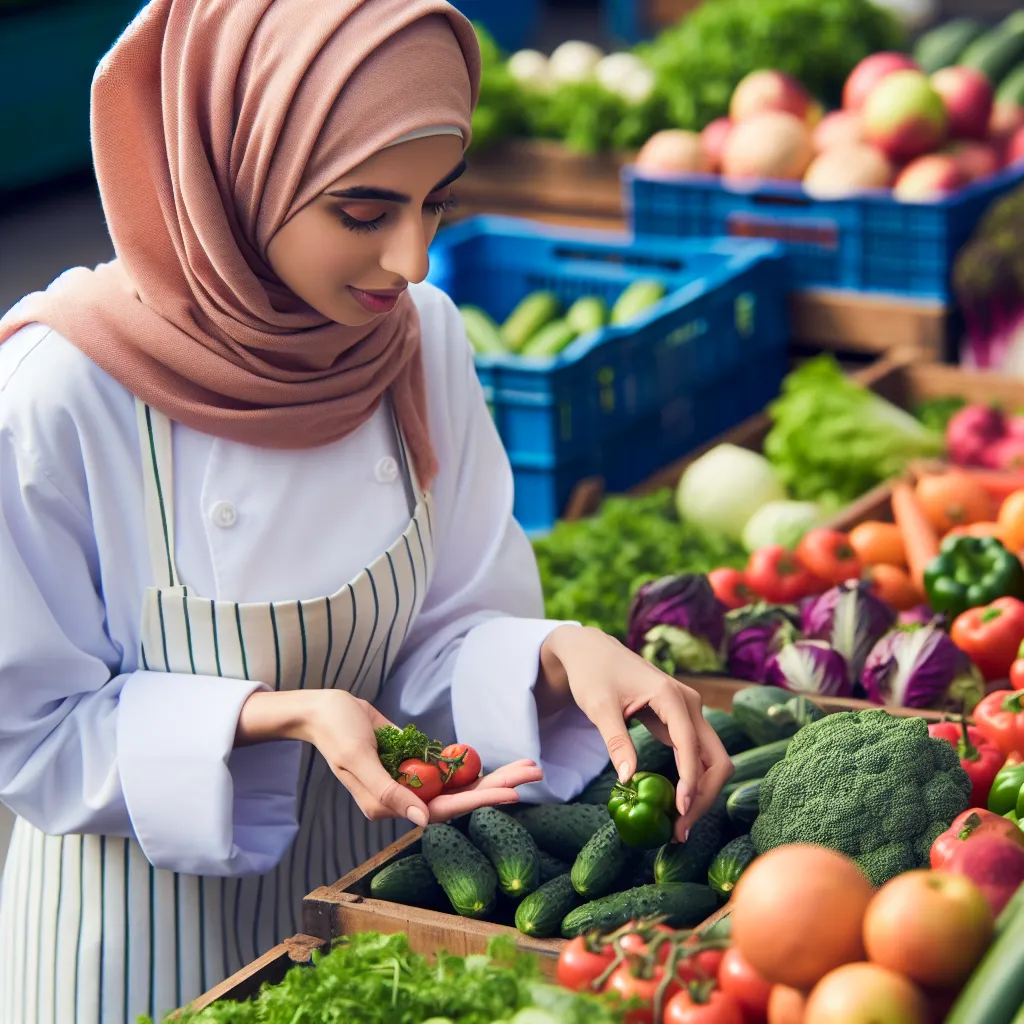The Rise of Sustainable Ingredients in Culinary World
In recent years, there has been a noticeable shift towards the use of sustainable ingredients in the culinary world. As environmental awareness continues to grow, chefs and food enthusiasts are exploring new ways to incorporate sustainable ingredients into modern dishes. This trend has led to the rise of a new era in cooking, where the use of local, organic, and ethically sourced ingredients is becoming increasingly popular.
One of the key drivers behind the rise of sustainable ingredients in the culinary world is the growing concern for the environment and the desire to minimize the carbon footprint of the food industry. This has prompted chefs to seek out ingredients that are not only delicious but also produced in a way that is environmentally responsible. From farm-to-table initiatives to the use of seasonal produce, there is a greater focus on embracing ingredients that support sustainable farming practices and reduce the overall impact on the planet.
Furthermore, the demand for sustainable ingredients has also been driven by consumer preferences. Today’s diners are more conscious of the origins of their food and the impact it has on the environment. As a result, there is a growing expectation for restaurants to offer dishes that feature sustainable and ethically sourced ingredients. This has led to a shift in the way chefs approach menu planning, with many choosing to highlight locally sourced and seasonal ingredients in their culinary creations.
Overall, the rise of sustainable ingredients in the culinary world represents a positive shift towards more mindful and environmentally conscious cooking. As chefs continue to explore innovative ways to incorporate sustainable ingredients into modern dishes, we can expect to see an even greater emphasis on ethical sourcing and environmental sustainability in the food industry.
Incorporating Eco-Friendly Foods into Contemporary Cuisine
As the world becomes more environmentally conscious, the culinary industry is also embracing sustainable practices by incorporating eco-friendly foods into contemporary cuisine. Chefs and food enthusiasts alike are exploring a wide range of sustainable ingredients to create modern dishes that are not only delicious but also ethical and environmentally responsible.
One of the key aspects of incorporating eco-friendly foods into contemporary cuisine is the emphasis on locally sourced and seasonal produce. By utilizing ingredients that are grown or produced nearby, chefs can reduce the carbon footprint associated with transporting food long distances. This approach also supports local farmers and promotes biodiversity.
Additionally, there is a growing interest in plant-based and alternative protein sources as sustainable ingredients in modern dishes. Ingredients such as tofu, tempeh, and legumes are being used creatively to replace or complement traditional animal-based products. This shift towards plant-based proteins not only has positive environmental implications but also aligns with the increasing demand for healthier and more diverse dietary options.
Furthermore, reducing food waste is another important aspect of sustainable cooking. Chefs are finding innovative ways to incorporate „ugly” produce, food scraps, and by-products into their dishes, minimizing waste and maximizing the potential of every ingredient. This mindful approach to cooking not only contributes to sustainability efforts but also encourages creativity in the kitchen.
In conclusion, the trend of exploring sustainable ingredients in modern dishes is gaining momentum in the culinary world. By incorporating eco-friendly foods into contemporary cuisine, chefs are not only creating delicious and innovative dishes but also contributing to a more sustainable and ethically conscious food industry.
The Impact of Sustainable Choices on Gastronomy
Exploring sustainable ingredients in modern dishes has become a pivotal aspect of the culinary world, with a growing emphasis on the impact of sustainable choices on gastronomy. The shift towards using sustainable ingredients is transforming the way chefs create and present their dishes, while also contributing to a more eco-conscious approach to dining. By prioritizing sustainable choices, the gastronomy industry is not only addressing environmental concerns but also redefining the art of cooking.
One of the key impacts of sustainable choices on gastronomy is the emphasis on locally sourced and seasonal ingredients. Chefs are increasingly turning to local farmers and producers for high-quality, fresh ingredients, reducing the carbon footprint associated with food transportation. Additionally, embracing seasonal produce allows for variety in menu offerings, promoting diversity and supporting local agricultural communities.
Furthermore, the focus on sustainability has led to a reevaluation of traditional cooking methods and food waste reduction. Chefs are exploring innovative techniques to utilize food scraps and minimize waste, transforming surplus ingredients into new and exciting dishes. This not only showcases culinary creativity but also aligns with the sustainable ethos of maximizing resource efficiency.
Moreover, the impact of sustainable choices on gastronomy extends to enhancing the dining experience for consumers. Diners are increasingly conscious of the origins of their food and the ethical practices employed in its production. The use of sustainable ingredients not only appeals to environmentally conscious consumers but also elevates the overall dining experience, providing a sense of connection to the environment and the community.
In conclusion, the impact of sustainable choices on gastronomy is multifaceted, influencing culinary practices, consumer preferences, and the environmental footprint of the food industry. By exploring sustainable ingredients, chefs are at the forefront of this transformative movement, shaping a more sustainable and ethically driven future for gastronomy.




